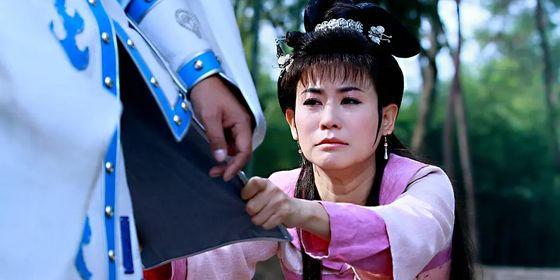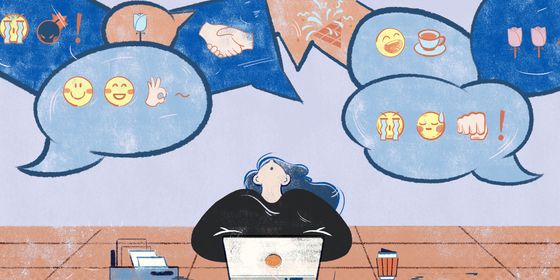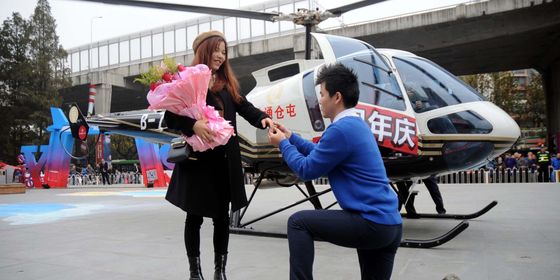What do you call your delivery driver? How about a customer?
In 1921, the first national congress platform of the fledgling Chinese Communist Party proclaimed that “anyone regardless of gender or nationality, who accepts the position and policies of the party, is recommended by a party member…can become our comrade.” This set the stage for “comrade” (同志, tóngzhì) to become a general salutation for not only party members, but among the masses after the Communist Revolution.
Today, provincial party organs issue periodic bulletins reminder party members not to abandon the term 同志 in favor of hierarchical position titles or “jianghu” terms of address reminiscent of martial arts movies, such as 大哥 (dàgē, big brother) or 老大 (lǎodà, boss): They not only promote inequality but are “confusing,” noted a People’s Daily report last year. Traditionally, Chinese terms for addressing others vary precisely based on one’s seniority and closeness relative the addressee, and the rules are doubly confusing when it comes to strangers whose social status isn’t immediately obvious. Here’s a rough guide for addressing strangers in Chinese—and see if it makes you think the revolutionaries were right to want to use a salutation with no social baggage.
Option 1: Faux familiarity
大姐 (dàjiě, lit. big sister; ma’am)
小姐 (xiǎojiě, little sister, miss)
大哥 (dàgē, big brother)
小哥 (xiǎogē, little brother; actually “little older brother”)
哥们儿 (gēme’r, “bro”)
阿姨 (āyí, auntie, actually term for mother’s sister)
叔叔 (shūshu, uncle, term for father’s younger brother)
爷爷 (yéye, grandpa)
奶奶 (nǎinai, grandma)
大妈 (dàmā, aunt)
大叔 (dàshū, uncle)
大爷 (dàyé, grandfather)
老乡 (lǎoxiāng, person from same village as oneself)
The vast majority of stranger salutations available in Chinese liken the addressee to a member of the speaker’s own family, and it’s not hard to see why—it comes off as friendly and non-threatening, and one doesn’t have to know the addressee’s name or occupation to use it. This is not an exhaustive list, as different regions have different terms for how to refer to family.
The rules for when to use which title are complex and often intuitive: for example, 小姐 could refer to women younger than oneself, but could also refer to women of a similar age, or a young-looking woman whose age you don’t want to guess. Likewise, 大姐 is for both older women and women to whom you want to show extra respect, regardless of actual age.
There’s the option to remove the 大 in front of either 哥 or 姐 to refer to someone close in age, or to show chumminess—it’s a favorite tactic of salespeople. 阿姨 and 叔叔, as well as doubled-up titles like 奶奶 or 姐姐, sound more intimate than titles preceded by 大, and are mostly used by children or those blatantly trying to kiss up to the addressee (or else it’s creepy). Men may be called 哥们儿 to indicate friendliness; likewise, calling someone 老乡 indicates that you want to drop social barriers or establish trust.
It’s advised not to use 小姐 to get the attention of servers or random younger women in the street, due to the fact it has taken on the connotation of “prostitute” (there are some regional exceptions to this, such as in Taiwan). The dividing age-line between terms like 大姐 and 大妈, or 大哥, 大叔, and 大爷 is also tricky to determine; wrongly calling an older man 大哥 may offend, whereas calling someone 大姐 or 大哥 before their time will remind them of the swift, brutal passage of the years.
Option 2: By title
女士 (nǚshì, ma’am or Ms.)
先生 (xiānsheng, sir or Mr.)
老师 (lǎoshī, teacher)
同学 (tóngxué, classmate)
师傅 (shīfu, master).
You can address any stranger as “Ms.” or “Mr.” though it may sound overly formal in and ordinary interaction. On the other hand, it’s usually a required in professional interactions. However, it can be awkward if you guess the addressee’s gender wrong, as can often happen when emailing or speaking on the phone.
A good compromise is to use 老师. Apart from actual teachers, it can refer to any person whose gender and age you don’t want to guess, and who have some sort of a professional relationship with you that makes Option 1 unsuitable—company clients, people in other departments of one’s company (that aren’t managers), and anyone on the phone who isn’t providing one with a service. Similarly, 同学 may not refer to one’s actual classmates, or even students, but any young person on a school campus. 师傅, on the other hand, almost exclusively refers to men, and usually those with blue-collar occupations: Beijingers refer to their taxi drivers as 师傅, and it’s a polite way to address delivery drivers (小哥 is also acceptable if they look young).
Option 3: By occupation
服务员 (fúwùyuán, server)
老板 (lǎobǎn, proprietor)
店长 (diànzhǎng, store manager)
经理 (jīnglǐ, CEO)
For people who interact with you as part of their job, there’s the no-frills option to call them by job title. Due to the connotations of 小姐, there was a movement in the early 2000s to get people to address all servers as 服务员. The term 老板 may refer to the actual owner of a business, or be used as a respectful salute like 师傅 in the above example. The directness of these terms goes against traditional rules of etiquette in China, but as the above examples show, there aren’t many better options.
Option 4: No address
你好 (nǐhǎo, hello)
劳驾 (láojià, excuse me)
不好意思 (bù hǎo yìsi, pardon me)
请问 (qǐingwèn, please if I may ask…)
You can skip addressing a person altogether and jump straight into your request, with words like 劳驾 or 请问 acting both as a polite means to get a person’s attention and a way to open the conversation. The drawback is that, absent the reference to their age, gender, or occupation, the addressee may not realize you’re talking to them—leaving you flailing and shouting 你好!at their retreating back.
For time-travelers
同志 (tóngzhì, comrade)
掌柜 (zhǎngguì, shopkeeper)
These terms were popular in eras past but are now outdated, though used by the occasional elderly person. Since the late 1980s, 同志 has since been appropriated by China’s LGBT community.
小伙子 (xiǎohuǒzi, young man)
姑娘 (gūniang, young woman)
This is also more common among elderly people addressing their juniors. However, younger people may use them when talking to their social “inferiors,” such as young-looking delivery drivers or waitresses.
美女 (měi nǚ, beautiful girl)
帅哥 (shuài gē, handsome man)
These still have some currency in the service sector, though their heyday was the mid-2000s to early 2010s. They have some connotations of being working class.
Regional peculiarities
妹儿 (me’r, “little sis”)—term from northeastern China, for referring to women younger than oneself; can connote exuberance and perhaps over-friendliness on the part of the speaker
老铁 (lǎo tiě, buddy)—哥们儿 on the internet and supposedly in northeastern China
老表 (lǎo biǎo, lit. cousin)—associated with Jiangxi and other southern provinces
爷们儿 (yéme’r, “gramps”)—old Beijing-speak among males (of any age), such as when hailing other, neighboring males in the siheyuan
靓女 (liàng nǜ, leng luei)、靓仔 (liàng zǎi, leng tsai)—Cantonese precursors to 美女 and 帅哥
Miscellaneous
亲 (qīn)、亲爱的 (qīn’ ài de)—both meaning “dear,” these are a version of 美女 for white-collar folks or for talking to strangers on the internet; it can be used in real life for strangers with whom one feels comfortable, but it’s purely intuitive when this is or isn’t acceptable.
喂 (wèi, hey!)
那谁 (nèi shéi, that one)
戴眼镜的 (dài yǎnjìng de, the one wearing glasses), or any reference to the addressee’s personal appearance
Don’t.












